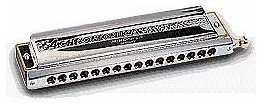
Johnny Frigo was my favorite jazz violinist. He lived a long time - 90 years - and he didn't start focusing on the violin until his late 60's (he played mostly bass before that). A stalwart Chicagoan, he remained a local institution even though he could have lit up New York or Paris. Here is the obit from the Washington Post:
Johnny Frigo, 90; Jazz Violinist and Bassist
By Adam Bernstein
Washington Post Staff Writer
Friday, July 6, 2007
Johnny Frigo, 90, a highly respected jazz violinist and
bassist who helped start the Soft Winds Trio and co-wrote
such standards as "Detour Ahead" and "I Told You I Love You,
Now Get Out," died July 4 at Weiss Memorial Hospital in
Chicago. He suffered complications from a fall.
After playing in Jimmy Dorsey's big band, Mr. Frigo formed
the Soft Winds jazz trio in 1947 with two Dorsey colleagues,
guitarist Herb Ellis and pianist Lou Carter.
The Soft Winds was not a major commercial success during its
five-year existence, but the trio recorded many songs and
developed a fine reputation in later years among
aficionados.
The members co-wrote "Detour Ahead" and "I Told You I Love
You, Now Get Out," both of which have been widely performed
by other artists.
In 1969, Mr. Frigo also wrote "Hey, Hey, Holy Mackerel" to
honor the Chicago Cubs during their promising but ultimately
ill-fated championship run that year. Even after the team
lost to the New York Mets, the Frigo tune remained a popular
chant at Cubs games for years.
Mr. Frigo spent much of his career in Chicago, his home
town, as a backup bass player on radio and studio bands as
well as on commercial jingles and in nightclubs, especially
Mister Kelly's. Starting in 1951, he was a fiddler for 13
years on the country radio program "National Barn Dance,"
backed by his band, the Sage Riders.
He accommodated a variety of musical styles, performing with
such strikingly different jazz entertainers as clarinetist
Pee Wee Russell, guitarist Charlie Byrd and bassist Oscar
Pettiford as well as singers Barbra Streisand, Dinah
Washington, Helen Merrill and Mahalia Jackson.
John Virgil Frigo, the son of poor Italian immigrants, was
born Dec. 27, 1916, on the south side of Chicago.
"The ragman would come around every Saturday, and we'd sell
him stuff we'd found in the alley during the week," he told
the Chicago Tribune. "His son played violin, and he gave me
my first lessons."
He taught himself the upright bass to improve his chances of
getting more professional assignments -- and meeting
girls -- during the Depression. After the 1960s, he learned
the electric bass to keep in demand.
As a teenager, he sat in with boogie-woogie pianist Albert
Ammons at the Club DeLisa and also sang at the Drake Hotel
in a group misleadingly called the Four Californians.
His singing career ended abruptly when his voice cracked one
night while in the middle of a high note in the ballad "One
Minute to One." When Mr. Frigo tried to repeat the song the
next night, a bouncer took him by his neck and dragged him
offstage.
One of his more memorable assignments came in 1941, when he
was asked to join the touring big band of movie comedian
Chico Marx, the Marx Brother who specialized in ludicrous
Italian accents.
They worked out a recurring gag where Marx would say, "Aye,
Johnny, bringa da violin down. Do you know 'Gypsy Love
Song?' "
Mr. Frigo: "I don't know the verse; I know the chorus. If
you play the verse, I'll noodle on the violin."
Marx: "Okay, you noodle on the violin, and I'll spaghetti on
the piano."
Decades later, Mr. Frigo called the bit "ridiculous. But,
little by little, it became a good routine. Every theater we
played, it would extend itself. I would play a beautiful
crescendo and slide down, and he'd say, 'You'd better pull
up to a gas stand. You've got a slow leak.' "
During World War II, Mr. Frigo served in the Coast Guard and
formed a band with several others stationed on Ellis Island,
including such leading bebop musicians as pianist Al Haig,
baritone saxophonist Serge Chaloff and trombonist Kai
Winding.
After the war, he spent two years with Dorsey and appeared
in the biographical film "The Fabulous Dorseys" -- about the
rivalry between bandleader brothers Jimmy and Tommy.
As a bandleader, Mr. Frigo recorded one album in his prime,
"I Love Johnny Frigo. . . . He Swings" (1957) featuring his
Soft Winds guitarist Ellis as well as bassist Ray Brown,
pianist Dick Marx and trumpeter Cy Touff.
Although he recorded regularly, Mr. Frigo did not enjoy much
recognition as a leader until the late 1980s, when he
started making several well-received jazz albums that
featured, among others, father-son guitarists Bucky and John
Pizzarelli.
After one of Mr. Frigo's engagements in Southern California,
Los Angeles Times music critic Don Heckman wrote that the
musician "made a convincing case for himself as the premier
violinist in contemporary jazz."
About that time, Mr. Frigo appeared twice playing violin on
"The Tonight Show" with Johnny Carson. When the host asked
why Mr. Frigo waited so long to become famous, he replied,
"Because there won't be enough time left for me to become a
has-been."
In 1995, he orchestrated a Soft Winds reunion on a jazz
cruise aboard the S.S. Norway that included Ellis, Carter
and Washington-area bassist Keter Betts. They subsequently
released the album "Soft Winds Then and Now." Mr. Frigo
remained a vital figure at jazz summits and other musical
gatherings.
His marriage to Dorothy Hachmeister Frigo ended in divorce.
Survivors include his second wife, Brittney Browne of
Chicago; a son from his first marriage, jazz drummer Rick
Frigo of Chicago; a sister; and three grandchildren. A son
from his second marriage, rock guitarist Derek Frigo, died
in 2004 of an apparent drug overdose.



No comments:
Post a Comment